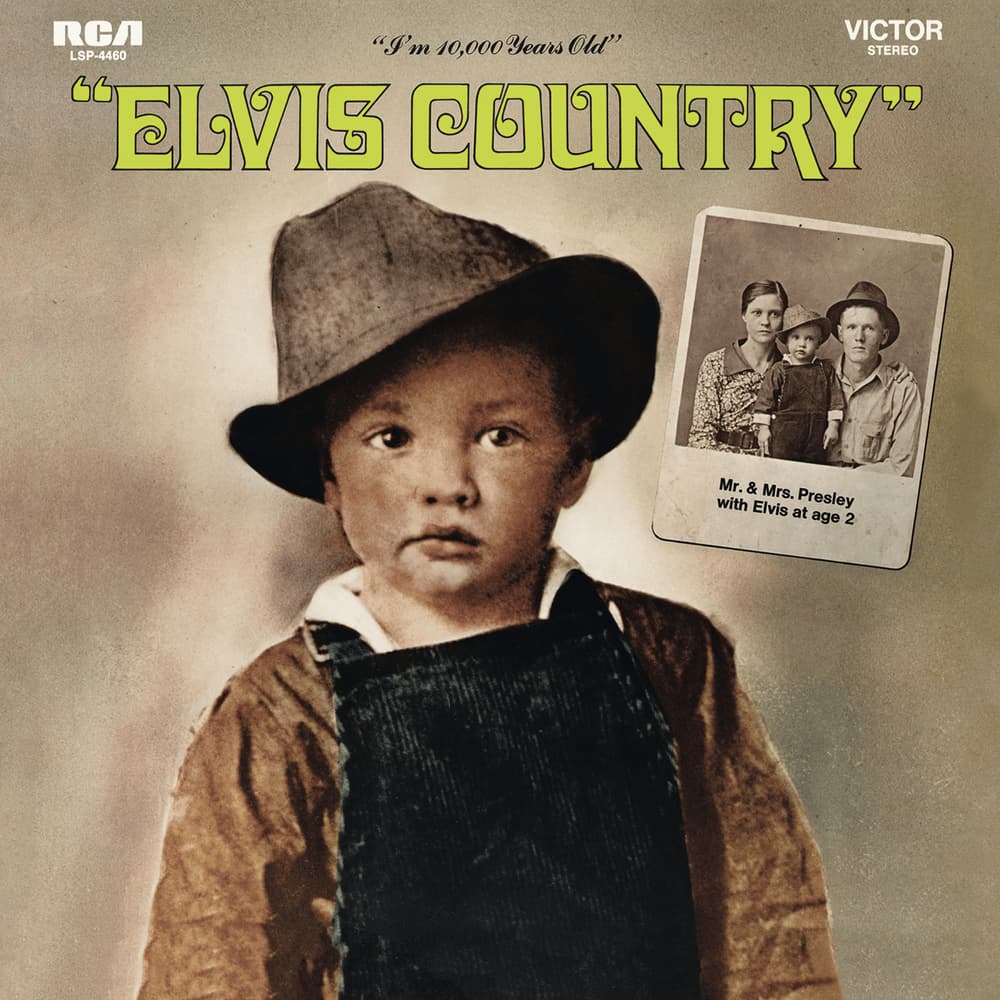
The song is a poignant reflection on a failed relationship, where one person realizes they must move on and take ownership of their own happiness.
There are certain songs that, no matter how much time has passed, manage to capture a specific mood, a particular moment in life with such precision that hearing them again is like stepping into a time machine. For many of us, Elvis Presley’s “It’s Your Baby You Rock It” is one of those songs. Released in 1971 on the album Elvis Country (I’m 10,000 Years Old), this track never found its place on the charts as a single, yet it holds a special, almost sacred, spot in the hearts of those who appreciate the depth of Presley’s later work. It was a time when the King was shedding the glitz of Hollywood for a more raw, authentic sound, and this song is a perfect testament to that evolution.
The story behind “It’s Your Baby You Rock It” is a simple, yet powerful one. The track was recorded during a marathon five-day session at RCA’s Studio B in Nashville in June 1970. This was a pivotal moment for Elvis, as he was returning to the city that had helped build his career. The song, penned by Shirl Milete and Nora Fowler, offered a stark, no-nonsense lyrical narrative that resonated with the mature, world-weary persona Elvis was embodying at the time. It’s a song about a friend listening to another friend complain about a relationship that has gone south. The speaker, however, has no more sympathy to give. The phrase “it’s your baby, you rock it” is a harsh but necessary dose of reality, a colloquial way of saying “you made your bed, now lie in it.” It speaks to the universal experience of watching a loved one make a terrible choice, and then having to watch them suffer the consequences, all while feeling a mix of frustration and exhaustion.
The meaning of the song goes beyond the literal interpretation. It’s a commentary on personal responsibility. The lines “You made the bed you’re sleeping in” and “I’m tired of hearing about it friend” are not just cutting remarks, they’re a plea for self-reliance. Elvis, with his uniquely rich and commanding voice, delivers these words not with malice, but with a deep sense of empathetic weariness. There’s a profound, almost tragic, beauty in his performance. The country-tinged arrangement, with its steady rhythm and melancholic harmonica, complements the emotional weight of the lyrics perfectly. It’s a song that acknowledges the pain of heartbreak but insists that healing can only truly begin when we stop blaming others and take ownership of our own actions. It’s a message that resonates just as strongly today as it did more than five decades ago, a reminder that sometimes the kindest thing you can do for someone is to let them find their own way.
Elvis had a remarkable ability to inhabit a song, to make it feel like his own personal story. In this track, you can almost hear the years of experience in his voice—the highs and lows, the love and the loss. It’s not the roaring, rebellious Elvis of the ’50s, nor is it the glamorous, show-stopping Elvis of Las Vegas. This is the grounded, soulful Elvis who understood the human condition, who knew that even the King of Rock and Roll had to face his own battles, and that some burdens, you just have to carry on your own. It’s a simple, yet profound, masterpiece that captures a moment of quiet reflection and a journey toward self-acceptance.